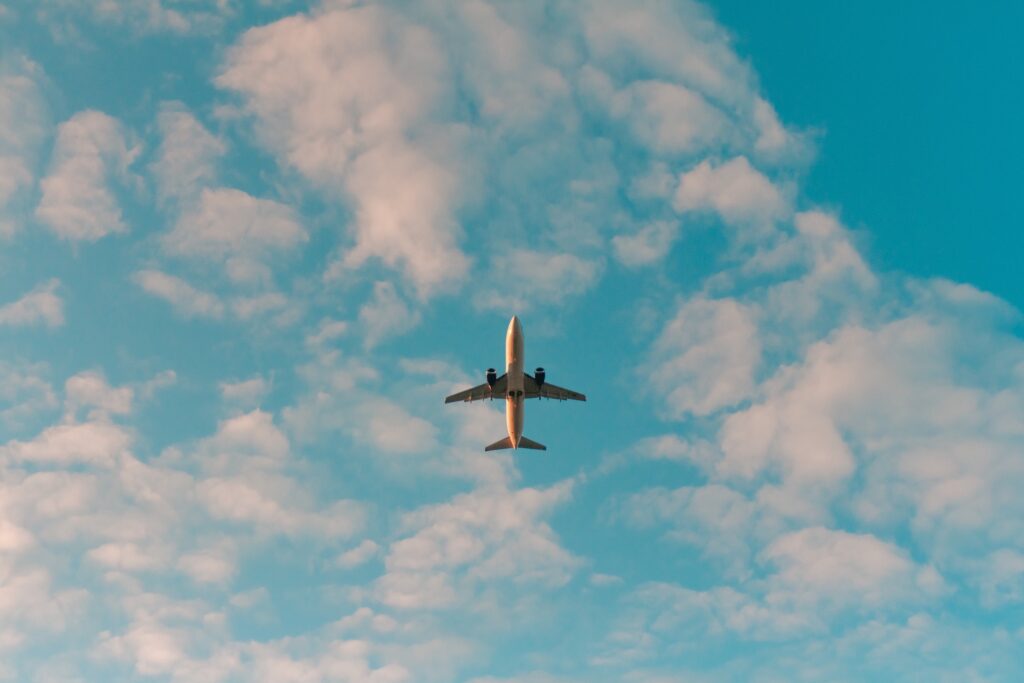How to rebook and have a lot less stress after a cancelled flight which has delayed refunds.
Cancelled flights. Imagine you’ve decided to visit the best vacation spots in Europe — perhaps Capri’s white-sand beaches or the calm luxury of Santorini .
You’ve planned everything perfectly, from your flight to your hotel by the water. Then, your phone buzzes: your flight has been canceled. Suddenly, your travel plans are thrown into disarray.
Flight cancellations can be stressful, especially when you’ve been anticipating a well-earned getaway. Whether you’re dealing with long refund delays or trying to secure a new flight, knowing what to do next can save time and frustration.
In brief, contact the airline right away, know your rights, document everything, and use travel insurance or credit card protections to your advantage.
With quick action and organisation, you can minimize frustration and keep your travel plans on track. A cancelled flight doesn’t have to stop your getaway — just a brief detour before you’re back on course toward the sunny beaches of Hawaii or wherever your next adventure takes you.
This guide walks you through how to rebook efficiently and handle delays with confidence.

Understand Why Flights Get Canceled
Airlines cancel flights for several reasons:
- Weather issues: Hurricanes, heavy rain, fog, or lightning can shut down airports, especially in coastal destinations like Florida.
- Operational challenges: Aircraft maintenance problems or crew shortages often trigger last-minute cancellations.
- Air traffic congestion: Busy hubs such as Miami International or Orlando International sometimes experience backup delays that ripple through connecting routes.
Identifying the cause helps you understand your options. If the cancellation stems from widespread weather problems, every carrier may be affected. But if it’s airline-specific, switching to another airline may be easier.
Step 1: Contact Your Airline Immediately
When a flight gets canceled, time matters. Acting quickly increases your chances of getting rebooked on the next available flight.
- Use several communication channels: Call the airline, message them via their mobile app, and monitor your email or text alerts.
- Avoid airport lines: Instead of joining long queues at the counter, reach the airline’s call center from a quiet spot or through their website. Phone agents can typically rebook you faster than in-person staff.
- If you’re already traveling, check with the nearest customer service desk or information counter. Airports sometimes open special assistance points when cancellations occur during peak travel seasons.
If you’re connecting through another city, look for the airline’s support desks or designated service zones inside the airport — these areas cater specifically to delayed or canceled flights.

Step 2: Know Your Passenger Rights
Passengers are legally protected in most regions when their flights are canceled.
- U.S. Department of Transportation (DOT) regulations state that if a flight is canceled for reasons within the airline’s control, passengers are entitled to a refund — even with nonrefundable tickets — if they choose not to travel.
- European Union Regulation 261/2004 (EU261) allows compensation up to €600 for certain cancellations and delays affecting flights that originate or arrive in the EU.
- Some airlines provide travel credits or vouchers instead of monetary refunds. If your trip is delayed by weeks or you expect schedule changes, requesting cash refund is often smarter than accepting credits.
Keep all receipts and screenshots of flight updates and cancellation messages. Documentation helps if you need to dispute delayed refunds or file a claim later. If you are at the airport or have to pay for your own accomodaton keep the receipts.
Step 3: Secure a Rebooking That Meets Your Needs
When you reschedule, make sure the new arrangement fits your schedule and comfort level.
- Ask about partner airlines. Many carriers belong to alliances (oneworld, SkyTeam, Star Alliance) and can transfer passengers seamlessly onto partner flights without additional fees.
- Verify that the rebooked flight includes the same basics — meal service, baggage allowance, seat preferences, and any paid extras from your original booking.
- Request priority waitlisting if the next flight is full. Airlines commonly give preference to travelers who act promptly after a cancellation.
If you have to stay overnight due to rebooking delays, ask whether your airline covers hotel and meal vouchers. Some offer reimbursement for extra expenses caused by cancellations beyond your control.

Step 4: Approach Delayed Refunds with Strategy
Refunds can take time, sometimes several weeks. Keeping track of the process makes it easier to resolve issues.
- Submit the refund claim immediately through the airline’s website or customer service.
- Write down your claim reference number and follow up every few business days.
- If the refund delay exceeds 30 days, contact your credit card company; many travel cards provide dispute resolution or temporary credits.
- Retain every transaction record, including confirmation emails or call logs.
Persistence and clear communication tend to get faster results. Airlines often prioritize passengers who remain organized and polite throughout the process.
Step 5: Use Travel Insurance and Support Services
If you purchased travel insurance or booked your flight with a credit card that includes protection, take advantage of these coverage benefits. Many policies reimburse costs related to:
- Trip interruption caused by cancellations or severe delays.
- Unexpected hotel stays if you need to wait for a new flight.
- Alternate transportation options when schedules cannot be rearranged easily.
Some premium travel cards and booking services include concierge assistance to help organize rebookings, ground transportation, and hotel changes while you focus on relaxing.
Step 6: Manage Stress and Stay Flexible
Even when plans shift, keeping calm helps you navigate the situation smoothly.
- Take a seat in a quiet area or a lounge while you wait for updates.
- Use downtime to adjust reservations, such as car rentals or hotel check-ins.
- Notify your destination contacts of any changes to your arrival time.
Airline representatives respond best to travelers who communicate clearly and maintain patience. Staying composed ensures better service and smoother rebooking outcomes.



